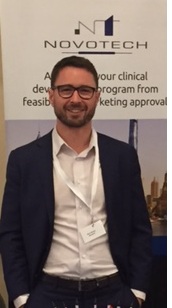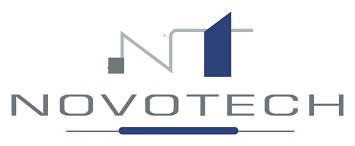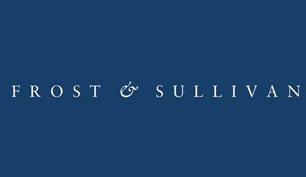Biotechnology and pharmaceutical companies within the United States and Europe face an increasing number of hurdles when undertaking clinical trials within their own country or region; problems such as over saturated patient pools, difficulties meeting and maintaining enrollment numbers, increasing costs and lengthy time delays.
While clinical trials are undoubtedly complicated projects, there are several noted decision-making criteria considered by sponsors when planning a clinical trial:
- The availability of accessible patient pools
- The availability of Key Opinion Leaders, clinical trial centres and medical technology
- Worldwide data acceptability
- Cost effectiveness
- Regulatory speed and site start up timelines
Until recently and from the confines of the United States and Europe, many parts of Asia have been viewed as being another world away – separated by not just distance and time, but also by access to modern technology and a skilled workforce. But as competition within the region’s clinical trial industry intensifies, each country in Asia has an increasing range of strengths and benefits to offer – benefits worth considering for your next clinical trial.

As a region, Asia is increasing its attractiveness as a clinical trial destination in relation to a number of these key decision-making criteria:
Increasing access to1 available patient pools
By 2030, 58% of the world’s urban population is likely to be concentrated in Asia. Its share of the world’s middle-class population will increase to 66%, up from just 28% in 2009; and 4 of the top 5 emerging markets in the world will be in Asia. But despite this, per capita government healthcare expenditure levels throughout Asia remain lower than in Western countries; making clinical trials an effective way for patients in Asia to access to innovative therapies usually beyond their normal reach.
The collective result of this economic and population growth is increasing access to treatment naive patient pools and low levels of clinical trial density throughout
the region.
Increasing patterns of1 disease
Asian countries are beginning to show similar or higher incidence rates of major diseases to Western nations, providing a comparable environment to conduct clinical trials.
Asia also presents spikes in prevalence of certain conditions such as gastric and oesophageal cancer in China, liver cancer in South Korea and hypertensive heart disease in the Philippines.This high incidence and prevalence makes the region extremely attractive for conducting clinical trials, given the shortage of accessible clinical trial candidates
in US and Europe.
The availability of Key Opinion Leaders (KOLs) and country therapeutic1 experience
Many Asian countries and sites are global leaders in relevant therapeutic areas; such as Taiwan for example. The National Taiwan University Hospital is a leading facility for cardiovascular treatments and its College of Medicine specializes in cancer research and clinical trials for novel.
Japan, China, Singapore and South Korea are front-runners in stem cell therapy due to market friendly government regulations and significant funding. China alone has 17 academic institutions and hospitals which have contributed greatly to regenerative medicine research and has over 70 active trials. Japan has conditional
marketing approval options for regenerative medicines, creating growth opportunities and placing Asia on the world’s clinical trials map.
Worldwide data1 acceptability
- Low rates of regulatory findings Between 200-2012, the percentage of critical EMA Good Clinical Practice (GCP) inspections in the Asia-Pacific region was less than in
other regions, and the percentage of major findings was among the lowest. Similarly, the percentage of ofcial actions taken in FDA inspections was also lower than
North America, refiecting the high quality of international compliance. - Strong intellectual property (IP) rights protection IP rights in Singapore and Japan are consistently ranked among the top 10 most secure out of 128 countries; with the United Kingdom and United States ranked 14th and 15th respectively.
 Over the past decade, China has continued to strengthen its IP protection process to meet global standards, while enforcing its legal framework and enhancing public awareness. In 2015, China and the US signed an agreement to work together on IP rights violations as part of efforts to prevent the export of counterfeit pharmaceutical products.
Over the past decade, China has continued to strengthen its IP protection process to meet global standards, while enforcing its legal framework and enhancing public awareness. In 2015, China and the US signed an agreement to work together on IP rights violations as part of efforts to prevent the export of counterfeit pharmaceutical products.
Cost effectiveness1 Low operational costs position Asia as a highly attractive destination for clinical trials when compared with the US and Western Europe. In the US for example an ECG procedure with interpretation and report costs around US$110, while in China the same report costs only approximately US$4 in China.
In July 2017, the South Korean government agreed to cover the standard of care for patients participating in clinical trials – greatly increasing the country attractiveness as a clinical trial 3 destination.3
Regulatory speed and site start up timelines4
Several countries within Asia have worked to improve their regulatory and clinical trial approval processes and speed, addressing time delay-causing hurdles.
- China: Changes being implemented under newly accepted Circular 53 policy will improve trial site availability, flexibility and selection – reducing time lines by up to potentially six months. China will now also accept foreign trial data, greatly improving timelines***.
- Hong Kong: Hong Kong has increased the number of CFDA accredited of Phase I sites, improving start times for early stage research.
- India: The Drug Controller General of India’s Apex Committee outlined four major changes in June 2017 to current regulatory process, streamlining it and
significantly shortening timelines.Global clinical trial applications and reviewed are expected to be shortened to just 3 – 5 months. - Malaysia: Ethics Committee review timelines from the date of submission have been reduced from 70 business days to 50.
- Singapore: The Singaporean government has simplified its clinical trial approval process,reducing the review of Clinical Trial Notifications to just 5 working
days. - Taiwan: Taiwan has reduced its review timelines for First In Human clinical trial applications from 120 days to just 30 business days.

“Now is an exciting time for clinical trials taking place in Asia. Asia is quickly becoming a clinical research powerhouse; facilitated by the availability of vast treatmentnaive patient pools, exceptional clinical infrastructure and talent,and low operational costs,” said Novotech Director Barry Murphy, “And as regulatory processes in Asia become more streamlined,timelines are continuing to decrease. Novotech is actively working with a number of regulatory authorities and clinical trial centres throughout Asia to improve approval processes and timelines,” said Mr. Murphy.
 Barry Murphy Novotech Director of Business Development
Barry Murphy Novotech Director of Business Development
Barry has over a decade’s experience working within the life sciences and contract research organisation (CRO) sectors. Barry began his career as a pharmacist in Ireland before moving into the CRO industry as an analyst with ICON. During his time at ICON, Barry gained experience in a number of account management roles; first out of their Dublin office and then relocated to Sydney, Australia to focus solely on managing ICON’s Asia-Pacific based clients. Working within the Business Development team, Barry recently relocated to San Francisco to bring his, and Novotech’s, experience and knowledge closer to their US customer base.
About Novotech
Headquartered in Sydney, Novotech is internationally recognised as the leading regional full-service contract research organisation (CRO). With a focus on clinical monitoring, Novotech has been instrumental in the success of hundreds of Phase I – IV clinical trials in the Asia Pacific region. Novotech provides clinical development services across all clinical trial phases and therapeutic areas including: feasibility assessments; ethics committee and regulatory submissions, data management, statistical analysis, medical monitoring, safety services, central lab services, report write-up to ICH requirements, project and vendor management. Novotech’s strong Asia Pacific presence included running clinical trials in all key regional markets. Novotech also has worldwide reach through the company’s network of strategic partners.
For RFP enquiries: Please fill out the form available at www.novotech-cro.com/contact-us-0
Corporate enquiries:
Please contact Marketing & Communications Manager
Justine Lamond on +61 2 8569 1458
or communications@novotech-cro.com

About Frost & Sullivan
Frost & Sullivan, the Growth Partnership Company, works in collaboration with clients to leverage visionary innovation that addresses the global challenges and related growth opportunities that will make or break today’s market participants. For more than 50 years,we have been developing growth strategies for the Global 1000, emerging businesses, the public sector and the investment community. Is your organization prepared for the next profound wave of industry convergence, disruptive technologies, increasing competitive intensity, Mega Trends, breakthrough best practices,changing customer dynamics and emerging economies? To join our Growth Partnership, please visit www.frost.com

Reference
1. Frost & Sullivan, ‘Asia: Preferred Destination for Clinical Trials’, 2016
* Cities with populations of more than 10 million.
** Including Tokyo (37 million), Delhi (25 million), Shanghai (23 million), Beijing, Manila and Seoul.
*** The Chinese Food and Drug Administration (CFDA)announcedin October 2017it would accept foreign clinical trial data.
2.The National Taiwan University Hospitalcarried out more than 500 heart transplants as of 2014 with a success rate exceeding 90%
3.Country information collated within Novotech Updates, available at http://novotech-cro.com/news-events




















